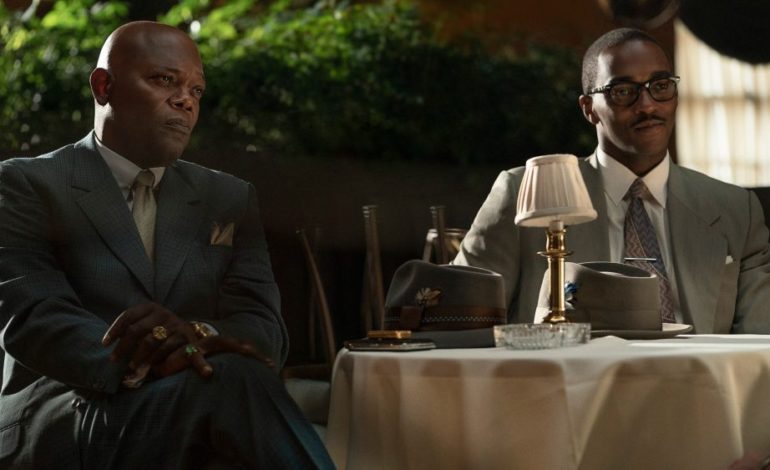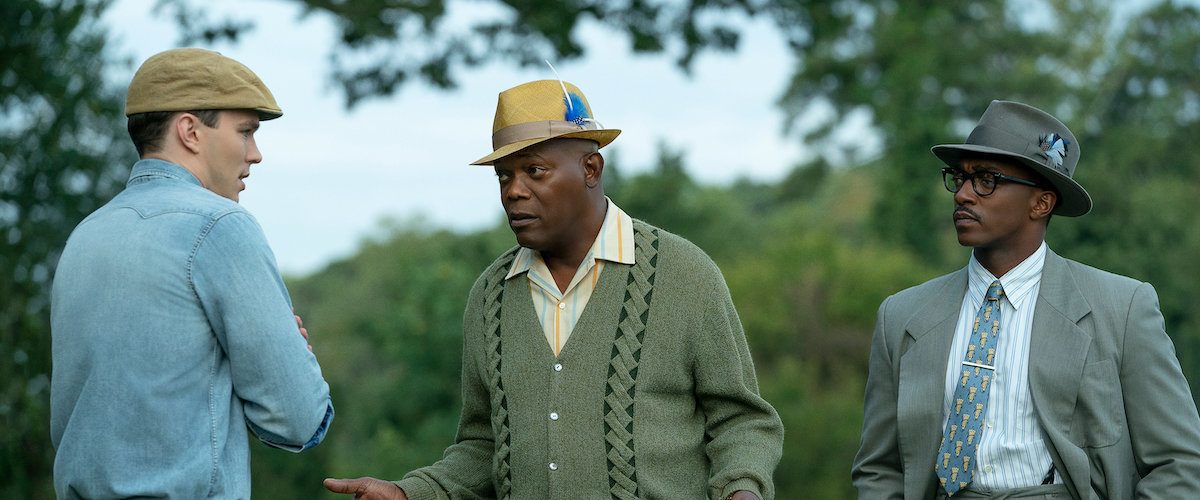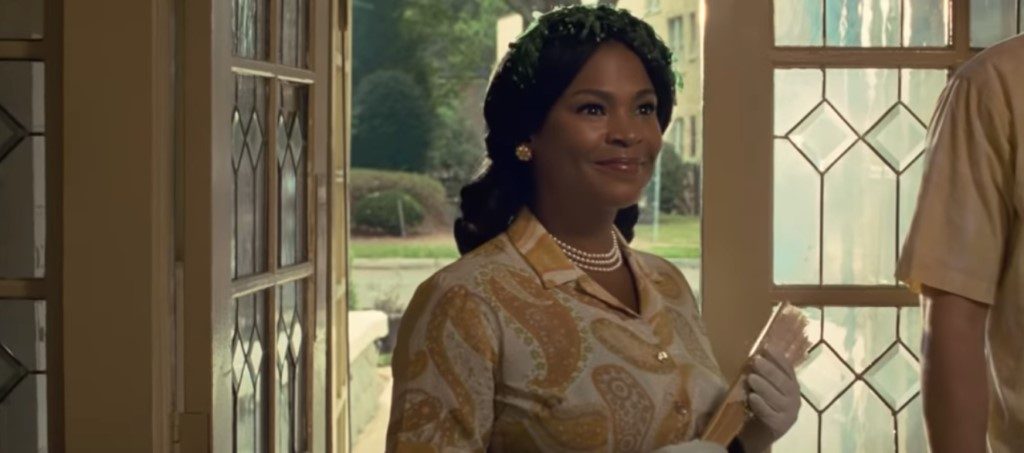

It is a shame the drama surrounding The Banker led to the film being pulled from AFI Fest and its original limited release date postponed. Bernard Garrett Jr, the film’s ex-producer and son of its subject of interest Bernard Garett, had sexual abuse allegations against him come to light, forcing a limited release on March 6 before being uploaded on Apple TV+ on March 20. Unfortunately, most moviegoers would have missed the limited release and most likely did not know the film was released on the Apple platform.
The Banker tells the story of how Bernard Garrett (Anthony Mackie) and Joe Morris (Samuel L Jackson) built an empire in the 1960s with Matt Steiner (Nicholas Hoult) as the face of the company. The film starts like any other film based on true events: in a courtroom with Bernard Garrett about to give a testimony. It then flashes back to his childhood to give the audience background of who Bernard was as a child, shining shoes and taking notes about investing and real estate. We then quickly move to when Bernard and Joe began building their empire.
While Matt pretends to be the head of the business, Bernard and Joe pose as the janitor and chauffeur. Before the Fair Housing Act, redlining was a common practice, barring loan borrowers from black neighborhoods and communities simply due to where their property was located. Bernard and Joe fought back by buying up property in white neighborhoods and then selling or renting them out to African American’s, thus pushing, mixing, and changing the neighborhood lines to be more equal. Before long, Bernard gets the idea to buy a bank, believing that this is “owning the other side of the real estate business.”


Anthony Mackie was convincing yet forgetful as Bernard Garrett and, looking back on the movie, he did not leave an impression on me. He played the part well of the uptight, proud, angry, ambitious genius to Jackson’s sarcastic laid-back street-smart hustler. The only scene that I can say left an impression or stayed with me is Bernard’s final monologue during his testimony. His thoughts on how The Declaration of Independence’s statement that all men are created equal is a lie for many citizens was quite powerful, especially given what we just witnessed in those two hours of film.
I thought Anthony Mackie and Samuel L Jackson played off of each other well but, between the two, Jackson seemed to actually enjoy playing the role of Joe. Some of The Banker’s best comedic scenes were usually between these two, led by Jackson’s flashy personality. Bernard didn’t like Joe right away while Joe knew how to poke at Bernard’s insecurities and part of their dynamic seemed from Bernard constantly underestimating Joe’s intelligence. Bernard not listening to Joe ultimately leads to the downfall of their empire, the latter’s statement of “social activism is not a good business decision” ultimately proven to be true.
Nicholas Hoult as Matt Steiner was a good choice by casting director Kim Coleman. He subtly plays the quiet, smart, and determined face of the growing empire and, despite being 30, Hoult’s youthful face adds to the character being over his head in Bernard and Joe’s plans. His dynamics with Joe, Bernard, and Bernard’s wife Eunice (Nia Long) works well as each has different nuances to teach him about this faux lifestyle. Bernard teaches him how to memorize the math behind real estate, Joe teaches him the things that rich people enjoy doing (i.e. golf, whiskey, and power suites) and Eunice teaches proper eating and table settings. There are some forced scenes though, such as one where his wife shares her real feelings about Texas, Bernard, and Joe. The racist undertone seems random, forced, and is never addressed again, yet his naivety of these issues causes the government to discover what is going on.


Nia Long as Eunice steals every scene she is in. She also has some of the best lines (and clothes) in the movie. Like most women in the 1960s, she is the rock and glue holding Bernard, and the empire, together. My favorite scene with her involved a conversation with Bernard about wearing the janitor uniform. Bernard thinks it is below him to put on such a degrading uniform, but Eunice explains that she and Joe are also putting on uniforms that feel degrading. Bernard starts to justify her wearing a uniform because she is a woman, which leads to a beautiful monologue from Eunice about that type of thinking is the same as white people justifying beating black men simply because they are black.
While on trial for bank fraud, Bernard and Joe are given a choice. Take the immunity deal or refuse and end up in prison. Joe comments on how social activism should not mix with business decisions, yet this entire trial and FBI involvement are, at their core, about social activism. Black people needed to hide behind white people to get ahead, while white people can have businesses and loans, unsafe banking practices, and even a comfortable dress code. In other words, they can get away with breaking the rules, while black American’s are always excluded from the American dream.
Verdict: 4 out of 5 Stars
The Banker is a different kind of social activism movie, one that not only focuses on real estate and business ownership but, getting out of the social circle you were born into. It gives an entertaining look at a real issue that many American’s fought against to change and I would strongly encourage all to watch this film.
